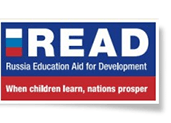For many countries, the OECD’s Programme for International Student Assessment (PISA) has become a crucial instrument to measure proficiency of pupils at the end of lower secondary education. Formerly, however, only few lower-income countries have participated in this exercise. That means there’s a huge lack of international benchmark for how well students are performing at what is, in fact, the end of compulsory schooling.
December 11, 2018
marked an important milestone for the education community, with the release of
results for seven lower-income countries: Cambodia, Ecuador, Guatemala,
Honduras, Paraguay, Senegal and Zambia that had participated in the PISA
for Development (PISA-D) pilot. Launched in 2014, this one-off
pilot, spanning six years, aimed to make the PISA assessment more accessible to
lower-income countries. The World Bank’s READ Trust Fund financed a number
of key PISA-D activities, including technical workshops to create the design of
the instruments, high-level reports on results,
received from existing cross-national assessments, capacity needs analyses and capacity building plans for the
participating countries.
For seven countries that participated in the
pilot, PISA-D is important because it provided internationally comparable data
on learning outcomes of their students at the end of compulsory schooling for
the first time. Nevertheless, the results, shown below, are very disappointing.
On average, only 43% of all 15-year-olds in these countries were enrolled in at least grade 7 by age 15 and therefore eligible to pass PISA-D test, whilst the OECD rate is 89%. The remaining 15-year-olds were either in lower grades or not even attending school. Average reading tempo ranged from 275 on the PISA scale for Zambia to 409 for Ecuador, well below the OECD result of 493. Results in math and science were no better either. The program results and conclusions should give much food for thought for the countries involved and will likely help them develop better approach and methods to improve learning outcomes in the future.
Find more on World Bank Blogs by Marguerite Clarke, Senior Education Specialist at the Human Development Network of the World Bank.







